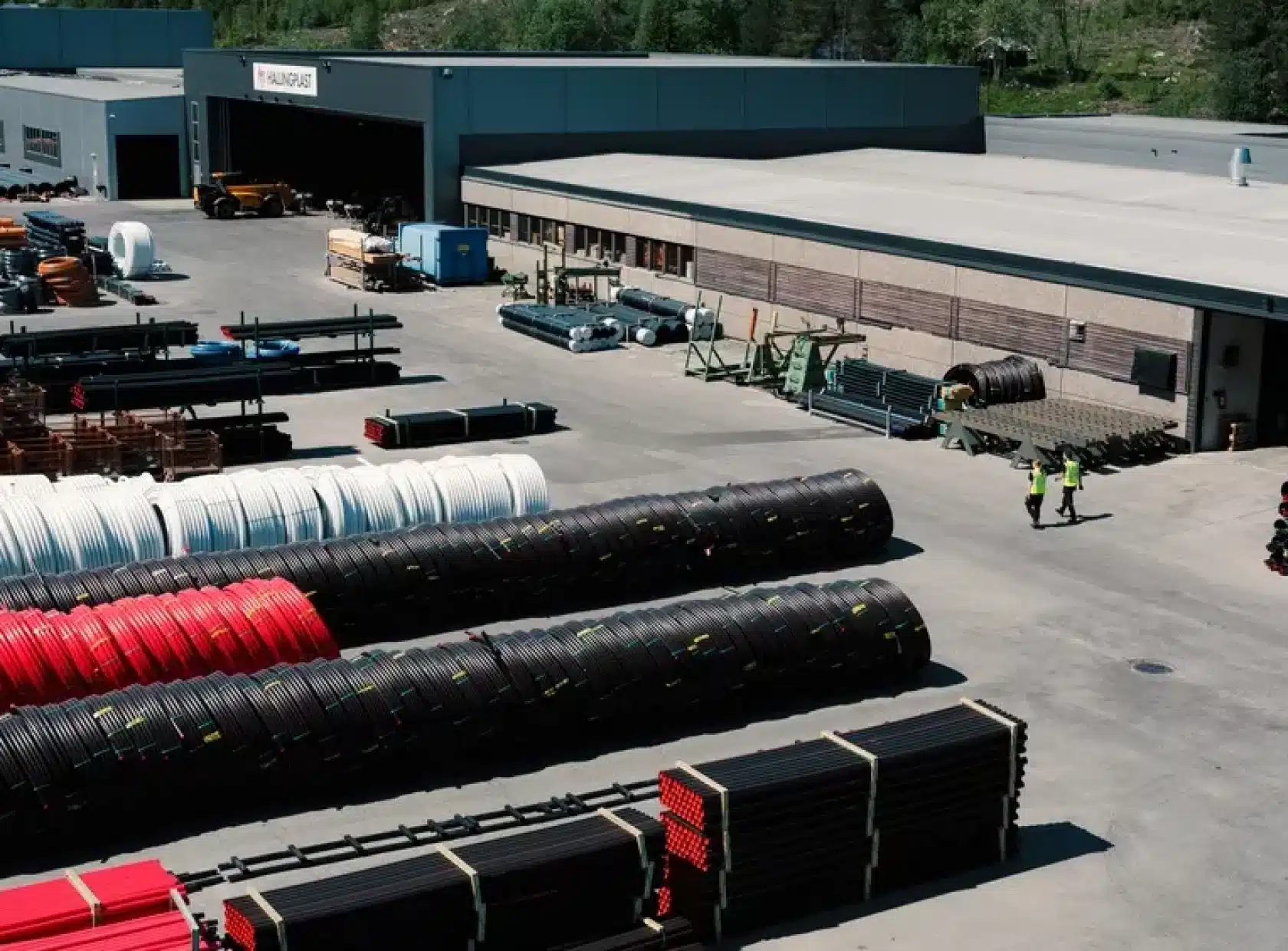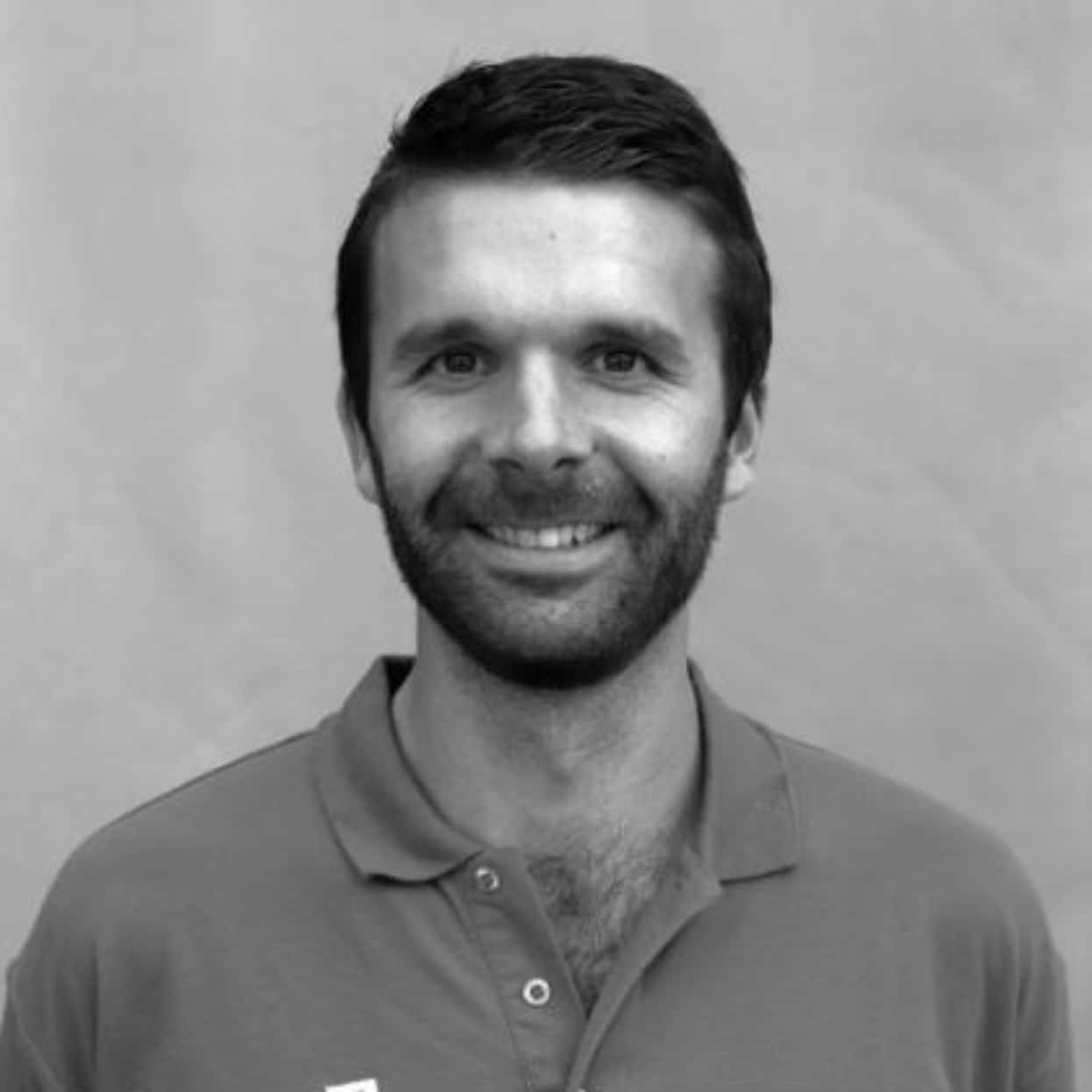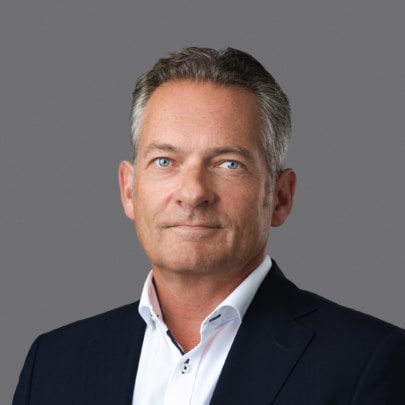
They make things that have to last for 100 years. So having effective control of production helps.
In Hallingdal, between Gol and Geilo, you’ll find a a traditional, family-owned enterprise producing plastic pipes. Hallingplast was founded in 1969 and has always been at the forefront of technological developments, but the green transition, growth and increased demand have meant new logistics challenges.
“We have a relatively large product stream up here, and we need effective control of our stock and product flow. We may not be manufacturing jet fighters, but we produce more advanced items that you might think. We use many components and have systems in place to support multiple simultaneous operations,” explains Sverre Tragethon, general manager at Hallingplast.
A better overview was needed
Better control requires a better ERP system. More precisely IFS, which is supplied and supported by Addovation in Drammen. Hallingplast migrated to IFS in 2019 which, according to Randi Tofting, who has been responsible for the upgrade, was a simple choice.
IFS gave us what we needed
“We came from a system that had no advanced logistics features, and we eventually had to find a new ERP solution. We chose IFS because it was capable of giving us what we needed, but also because we were favourably impressed by Addovation. You need help when working with systems like that, and you need a great partner who can help with the painful process of migrating ERP systems and introducing new procedures,” says Randi Tofting.

This is how they make plastic pipes
IFS also makes interacting with the various departments in the company easier. After all, making plastic pipes is not so simple,” says Sverre Tragethon. He readily explains the production process: “At a basic level, it sounds simple. We take a raw material, melt it down and transform it into a new product. But that requires many different processes. What we do most is extruding thermoplastic pipes. You take a raw material in the form of pellets, which arrive on three or four heavy vehicles every day. The raw material is placed in indoor silos and incoming raw materials are continuously entered in IFS”.
“Then the pellets are transported via a pipe system which uses a vacuum to draw the raw materials out to each production line. For this, we use a management system which has so far not been integrated into IFS.”
Inside the pipes, the raw material is dropped into an extruder, which is a steel cylinder with a screw inside, which screws the raw material forward. Heat is simultaneously added so that the plastic melts and crunches – and the result is a homogeneous mass. The plastic is then pressed through a moulding tool which makes it come out as a tube. At this point, the plastic is approximately 190 degrees, and the rest of the process really just involves running it through a cooling bath to remove the heat, which takes time. We therefore usually have 30 metres of cooling before the pipes are cut into different lengths,” says Tragethon.
Production planning and other benefits
“Changing ERP systems made a huge difference. Being able to build these product structures and specifying exactly the raw materials and the quantities needed for the various products. We gained a very good overview of how much we had in stock, what the cost of each product is, how much we have to order and so on. This has helped us a lot,” says Randi Tofting.
“Production planning is very important. Now everyone in the management team can go in and see how far along the products are in the process, and sales can provide customers with feedback about expected delivery times. This is an overview we just didn’t have before,” she explains.
Keeping track of costs is now much easier.
“Costs are always important when running a business, and there are also scaling opportunities. When you’re growing, you sometimes have to change pace – and starting to use IFS was a real change of pace for us. We couldn’t have had the growth we’ve had without changing our ERP system.”

We also see great potential in IFS for more digitalisation. Getting more production data into the system as well as extracting more data. We also see opportunities for enhanced forecasting, i.e. Producing better sales forecasts, which would give us the opportunity to improve production,” says Tragethon.
Ready for the green transition
There is another aspect of running a manufacturing company that is increasingly in focus and that is minimising emissions and being as sustainable as possible. This is a challenge Hallingplast is well aware of:
“For those who don’t work in the plastics industry, plastic is a slightly negatively charged term. But an extremely large number of things are made of plastic, and we have to think about how to manage that and address the challenges we face.
One of the measures is recycling, which we have to do more of. We use a lot of recycled materials in our production, and work hard on product development in order to be able to increase the proportion of recycled materials going forward. Our products are designed to be used for more than 100 years and have been ‘designed to recycle’ from the start.”
Another measure is knowing where the plastic comes from.
“There are opportunities to buy fossil-free plastic, made from renewable resources. With our ISCC PLUS certification, we’re able to document the origin of the products,” says Sverre Tragethon.
“An annual audit documents the link between how many kilos of ISCC-certified raw materials we have received and how many kilos of finished ISCC-certified pipes we have produced. We cannot supply more – i.e. more kilos of pipe – than we have bought. This is checked every year by an independent auditor, as a prerequisite for retaining our ISCC PLUS certification.
We chose to work with Addovation precisely to give us this option in IFS. The benefit for our customers is that they receive a certificate that states how many kilos of fossil-free material have been used in their project,” explains Randi Tofting. It is also helpful to use IFS to gain better control over recycled raw materials and manage the volumes used in production.
Hallingplast itself prioritises recycling as much as possible. Incorrectly produced pipes are recycled back into the company’s own products. The pipes also have a very long service life:
“We produce large items that have a service life of 100 years. It’s now very possible to extract the materials again and recycle them when the time comes,” explains Sverre Tragethon.
Thanks to regular liaison with and follow-up from Addovation, several specialist adaptations and working with dedicated developers, Hallingplast envisages incorporating more elements into IFS as well as integrating its subsidiary WOPAS into the solution. The result: More sustainable, profitable and manageable production.
Would you like to discover how Addovation can help your company to improve its business processes? Contact us!
Contact us

Anders Kjersem
Sales Manager, Norway
anders.kjersem@addovation.com

